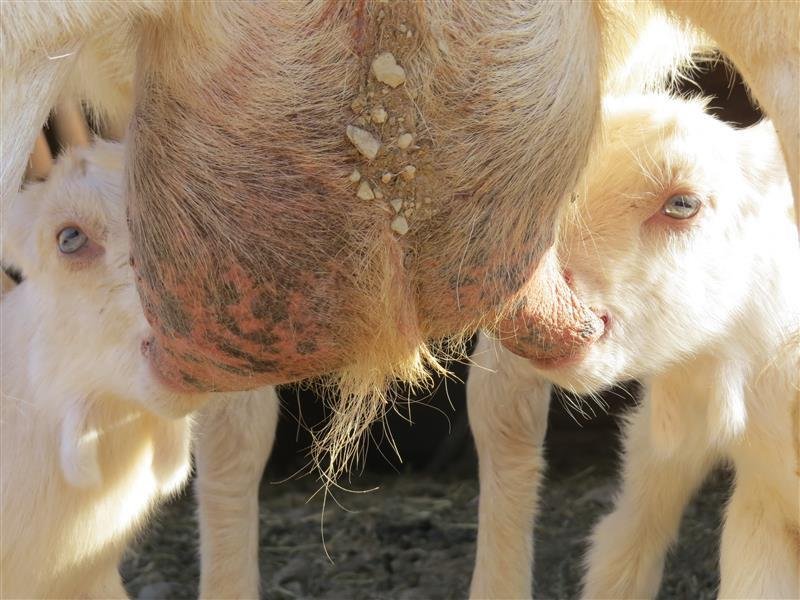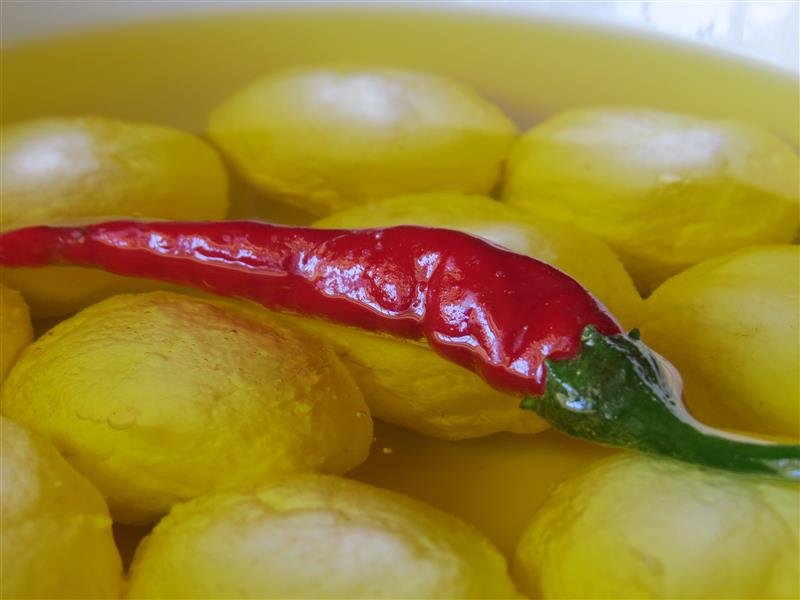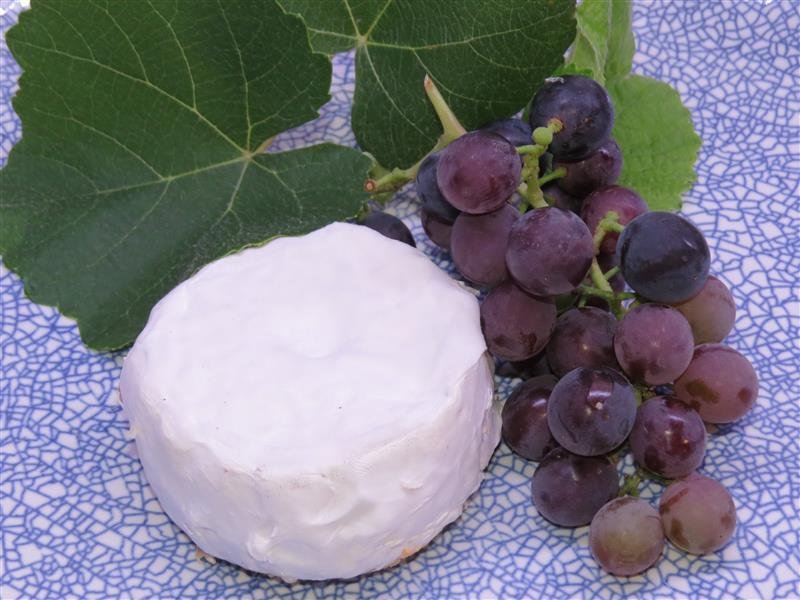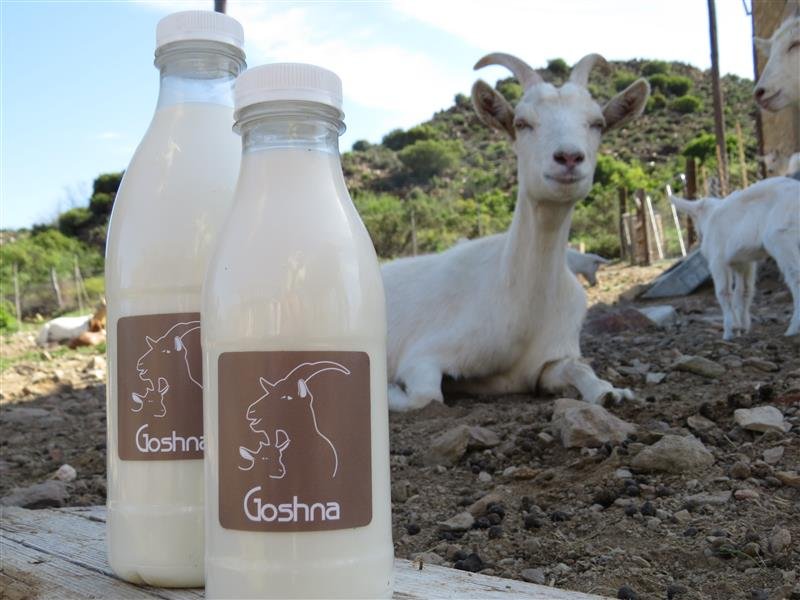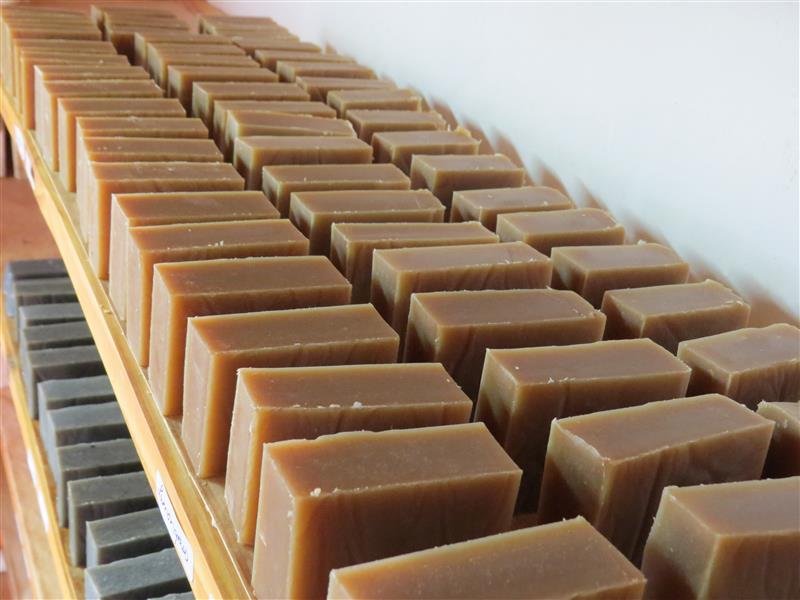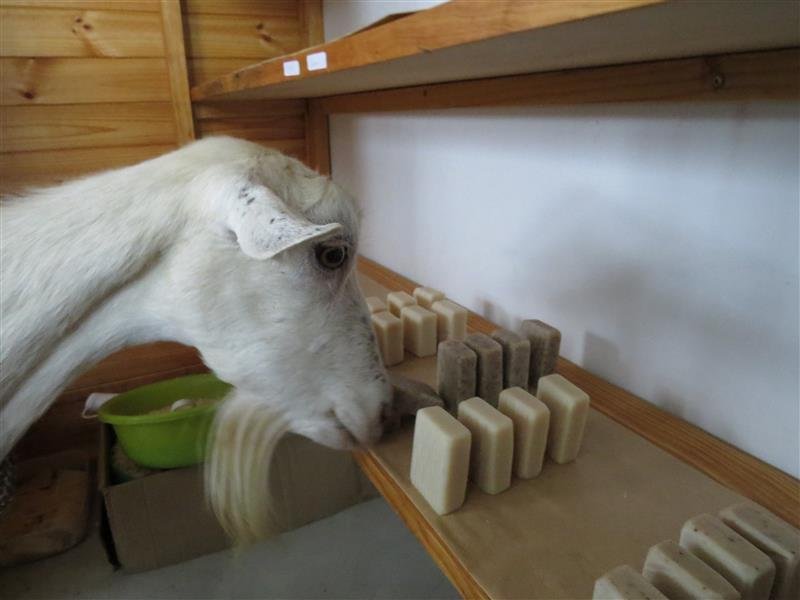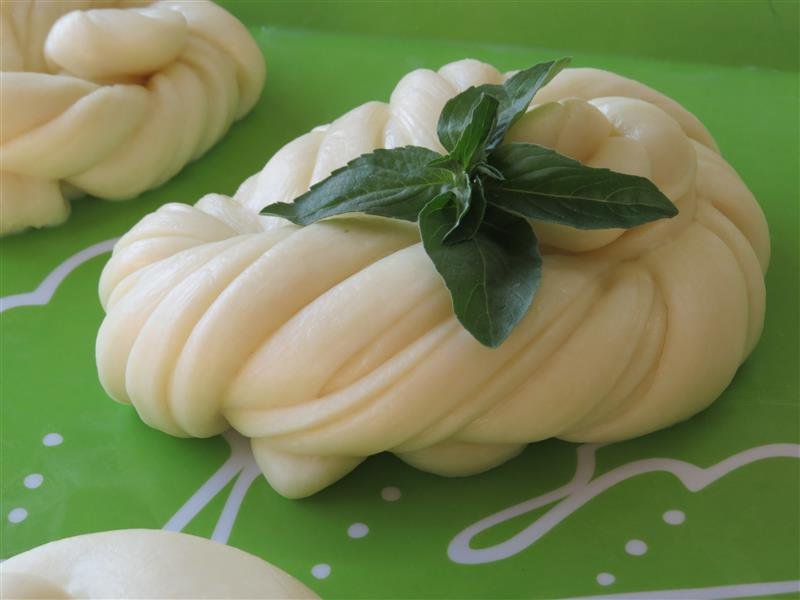Ever wondered what milk Cleopatra bathed in? Legend assumes that it was donkey's milk. I think it was camel's milk. Disgusting but for those desert conditions I believe it most likely. When you're in the Middle East you see flocks of goats, beautiful dappled Nabatean goats. But then you also see camels. A lot of them. There are warning signs everywhere of the; "camels crossing". I'm adventurous and love exotic cuisine but camel's milk? Well as I said. I think it's disgusting. Goats milk however. I can eat it, drink it and, yes, bath in it! I love goats milk in any shape or form.
My first love affair with goats was the cheeky Nabatean goats in Israel. When I lived way down south in the Negev for a few months I was entrusted with the care of a few Nabateans. And that is where I learned to milk them. I also learnt how to make the soft desert style goats milk cheese. We ate it every day. With a hot pita that I would bake on the fire rocks with a big Israeli style salad. Chopped red pepper, cucumber, tomato, onion and a squeeze of lemon juice. I lived blissfully on that for months.
Because I insisted that a farm was not a farm without a goat or two or three, my husband bought me a goat as a wedding present. Maybe some of you women aren't swept off your feet with the idea. Annabelle was one of my best presents ever! I loved her. But goats are very social creatures. Despite the fact that they are really humans disguised as goats they do need other goats. Did you know that some goats can actually go into depression if they are the only goat? So one became three (one of which was pregnant) became five....and before I knew it I had 60 goats. And all 60 were named. And yes. I did remember all their names. And even more remarkably; the goats knew their names!
However before we reached the 60 stage my husband made it abundantly clear that if my "precious pets" didn't earn their keep he would sell them. Or eat them. The decision was mine. I quickly learnt to make cheese. And soap. And yoghurt. I also found a demand for goats milk, particularly for babies whose mamas needed to supplement feed them. Although goats milk contains lactose it is very readily digestible by the human body. It takes about 2 hours compared to cow milk which can take 12 hours to digest. It is also not inflammation causing, unlike cow milk. Goats milk is loaded with nutrients. And, my personal favourite health reason, goats milk is a natural prebiotic!
My first cheese I called peasant cheese. It was a very basic recipe. Delicious. And easy. Pretty much lemon and fresh goats milk. Once curdled you hang the curds in a cheesecloth to drip. Add herbs. Or not. And eat. But with 60 goats I soon went on a cheese course and my husband bought me some fabulous Artisan cheese recipe books. With enough goats milk to fill a bath I was making all sorts of delicious cheeses. Some flopped. Cheese is like a moody teenager. Very sensitive and prone to explode with the least provocation. Wrong pH. Incorrect temperatures. A stressed cheesemaker. A rogue goat squeezing into the dairy to swig the milk - it all affects the cheese.
These days with only my 6 goats - and of those only 3 of whom I am milking - I only have 10 to 12 litres a day. Yes that is a lot. But far less than what 60 give! Making cheese every single day gets to be a chore. And while I always love spending time with my goats, I didn't enjoy being in the hot dairy every day with cultures, rennets, weights and thermometres. These days I am loving the time I have. At my leisure I can make either yoghurt, or soap or cheese with the amazing goats milk. And some days I simply bottle it for the few babies who still rely on the nourishing goats milk.
Whatever milk Cleopatra bathed in, she knew something that few of us today do, the healing power of goats milk. I love my goats milk soaps. Recently I've started making goats milk shampoo bars. And - wow - my hair loves it! The value of Goats Milk for skin and hair is endless. It is high in amino acids as well as unsaturated fatty acids which break down dead skin cells. Goats Milk is anti-bacterial as well as being a natural alkaliser. Goats Milk contains selenium and zinc which fight sun damage. It is also packed with vitamins; particularly vitamin A which repairs damaged tissue and reduces wrinkles. The pH of Goats Milk is very close to that of humans and stimulates healing for those with skin allergies.
Have I convinced you to get a couple goats? There are so many reasons why a homestead should have goats. My current dilemma is this: yesterday I made halloumi. Today I've made shampoo bars. What do I do tomorrow? Feta? Cream cheese? I think it's high time that I shared one of my recipes. Goats milk soap? Goats milk cheese? Goats milk yoghurt? Goats milk shampoo bars? Or simply goats!!! What would you like to see?

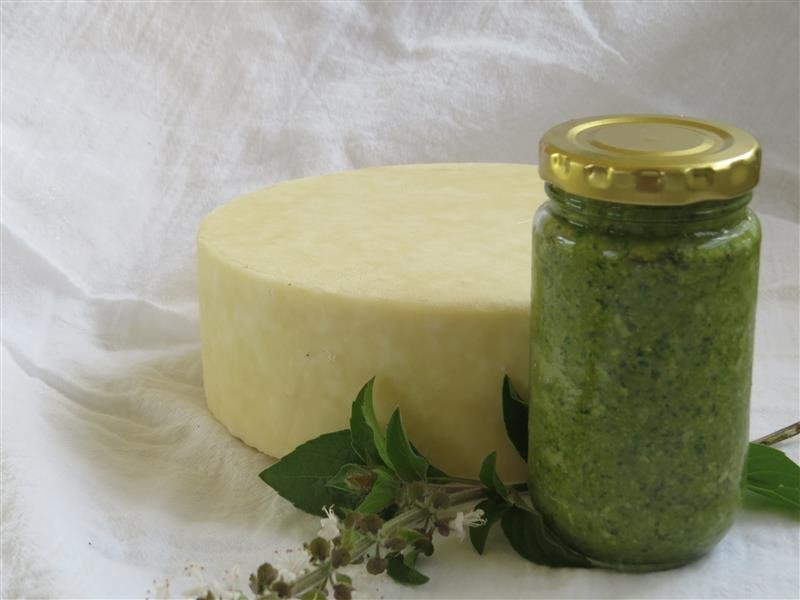
.JPG)
